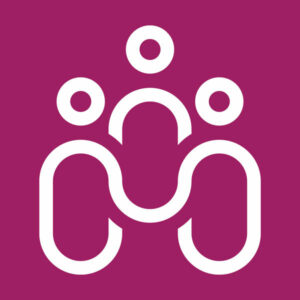In recent decades, society has made significant strides toward embracing diversity and promoting inclusivity in various spheres of life. However, the LGBTQ community continues to face significant challenges, especially when it comes to employment discrimination. Despite many countries enacting laws to protect the rights of LGBTQ individuals, discrimination in the workplace remains a pressing issue, negatively impacting their career opportunities and overall well-being. This blog aims to shed light on the issue of LGBTQ employment discrimination, exploring its causes, the progress made so far, and the steps needed to create a more inclusive and equitable work environment.
Contents
Understanding LGBTQ Employment Discrimination

LGBTQ employment discrimination refers to the unfair treatment, bias, or harassment that individuals who identify as lesbian, gay, bisexual, transgender, or queer face in the workplace. This form of discrimination can manifest in various ways, including:
- Hiring Bias: Some employers may reject job applicants solely based on their LGBTQ identity, without considering their qualifications or skills.
- Unequal Treatment: LGBTQ employees may experience differential treatment in the form of lower pay, fewer promotions, or being assigned less desirable tasks compared to their heterosexual and cisgender colleagues.
- Harassment: Verbal or physical abuse, offensive comments, and derogatory slurs can create a hostile work environment for LGBTQ individuals.
- Employment Termination: In some cases, LGBTQ employees might face wrongful termination due to their sexual orientation or gender identity.
Historical Overview
Throughout history, LGBTQ individuals have faced significant discrimination in the workplace. They have been subjected to discriminatory hiring practices, unequal pay, harassment, and even termination based on their sexual orientation or gender identity.
However, over time, there have been significant legal developments and milestones that have provided some protections for LGBTQ employees.
Current Scenario
The 21st century brought both progress and setbacks in the fight against LGBTQ employment discrimination. Some countries and regions introduced legislation to protect LGBTQ rights, including anti-discrimination laws and the legalization of same-sex marriage. In contrast, other places maintained discriminatory practices, criminalizing homosexuality and limiting the rights of LGBTQ individuals.
Recent Years: Advancements in Corporate Inclusivity
In more recent years, several multinational corporations have taken steps to promote LGBTQ inclusion in the workplace. Many companies have adopted LGBTQ-inclusive policies, extended benefits to same-sex partners, and actively supported Employee Resource Groups (ERGs) to create more supportive environments.
Legal Protections
Over the years, many countries have recognized the importance of protecting the rights of LGBTQ individuals in the workplace and have taken steps to enact laws and regulations to combat employment discrimination based on sexual orientation and gender identity. While the legal landscape varies from one jurisdiction to another, some common types of legal protections have been implemented to safeguard the LGBTQ community from discrimination in employment.
Anti-Discrimination Laws
Anti-discrimination laws prohibit employers from discriminating against employees or job applicants based on their sexual orientation or gender identity. These laws ensure that LGBTQ individuals have equal access to job opportunities, promotions, benefits, and other terms of employment.
Equal Employment Opportunity (EEO) Laws
In many countries, Equal Employment Opportunity laws have been established to promote fairness and prohibit discrimination in the workplace. EEO laws often include provisions that explicitly protect individuals from discrimination based on their sexual orientation and gender identity. These laws are enforced by government agencies tasked with investigating and addressing complaints of employment discrimination.
Employment Non-Discrimination Acts (ENDA)
Several countries have introduced or considered Employment Non-Discrimination Acts to explicitly include sexual orientation and gender identity as protected characteristics in employment law. ENDA legislation aims to prohibit employment discrimination based on LGBTQ status in both the public and private sectors.
Executive Orders and Administrative Actions
In some countries, executive orders and administrative actions have been issued to protect LGBTQ individuals in the federal workforce and government contracting. These orders typically prohibit discrimination based on sexual orientation and gender identity in federal employment and by federal contractors.
Impacts of Discrimination

The impacts of discrimination on LGBTQ individuals in the workplace are profound and far-reaching. Employment discrimination based on sexual orientation and gender identity not only affects the targeted individuals but also has broader consequences for the workplace culture, productivity, and overall societal well-being. Here are some of the key impacts of discrimination:
- Emotional and Psychological Effects: LGBTQ individuals who experience discrimination at work often suffer from emotional distress, anxiety, depression, and a decreased sense of self-worth. The constant fear of discrimination can lead to a hostile work environment, contributing to a decline in mental health and overall job satisfaction.
- Reduced Productivity and Engagement: Discrimination can hinder LGBTQ employees’ ability to fully engage in their work, affecting productivity and job performance. The stress and emotional toll of discrimination may lead to increased absenteeism and reduced commitment to the organization.
- Career Limitations and Economic Impact: Discrimination can limit the career prospects of LGBTQ individuals, resulting in reduced opportunities for advancement, lower pay, and fewer benefits. As a consequence, LGBTQ employees may face financial challenges and struggle to achieve economic stability.
- Workplace Retention and Turnover: Persistent discrimination can lead LGBTQ employees to leave their jobs or industries altogether, leading to higher turnover rates. Losing skilled employees due to discrimination is detrimental to both the individual and the organization, resulting in talent shortages and increased recruitment costs.
- Impact on Mental Health and Well-being: The stress and emotional toll of discrimination can negatively impact an individual’s mental health and overall well-being. LGBTQ individuals facing discrimination may experience higher rates of anxiety, depression, and suicidal thoughts.
Workplace Policies and Diversity Initiatives
Workplace policies and diversity initiatives play a crucial role in creating an inclusive and equitable environment for LGBTQ employees. These initiatives aim to promote diversity, combat discrimination, and foster a culture of acceptance and respect. Here are some key workplace policies and diversity initiatives that organizations can implement to support LGBTQ employees:
- Non-Discrimination Policy: A comprehensive non-discrimination policy should explicitly include sexual orientation and gender identity as protected characteristics. This policy should clearly state that discrimination, harassment, or retaliation against LGBTQ individuals will not be tolerated in any aspect of employment.
- Equal Benefits and Protections: Organizations should ensure that all employee benefits, such as health insurance, family leave, and retirement plans, are extended equally to same-sex couples and LGBTQ employees. Ensuring equal access to benefits supports LGBTQ families and demonstrates a commitment to fairness.
- Gender Identity and Expression Inclusivity: Workplace policies should respect employees’ gender identity and expression. This includes providing options for employees to use preferred names and pronouns, as well as establishing inclusive restroom and dress code policies.
- Training and Education: Regular diversity training and education programs can help raise awareness and sensitivity about LGBTQ issues in the workplace. These initiatives can address unconscious biases, promote understanding, and create a more supportive environment for LGBTQ employees.
- Employee Resource Groups (ERGs): Establishing Employee Resource Groups dedicated to LGBTQ employees can provide a safe space for networking, support, and advocacy. ERGs can play a vital role in offering mentorship, organizing events, and advising on policies that benefit LGBTQ employees.
Overcoming LGBTQ Employment Discrimination

Overcoming LGBTQ employment discrimination requires collective efforts from individuals, organizations, governments, and society as a whole. By addressing the root causes and actively working towards a more inclusive environment, we can strive to eliminate discrimination and create equal opportunities for LGBTQ individuals in the workplace. Here are some strategies to overcome LGBTQ employment discrimination:
- Strengthen Legal Protections: Advocate for comprehensive and inclusive anti-discrimination laws that explicitly protect LGBTQ individuals in employment. Collaborate with lawmakers and LGBTQ advocacy groups to push for legislative changes and ensure the effective enforcement of existing laws.
- Encourage Allyship: Encourage the formation of allyship networks within organizations. Furthermore, allies play a crucial role in supporting LGBTQ colleagues and promoting a culture of acceptance and inclusion.
- Implement Inclusive Policies: Ensure that workplace policies are inclusive and respectful of LGBTQ employees. Review and update HR policies, including non-discrimination policies, benefits packages, and dress codes, to reflect a commitment to diversity and inclusion.
- Champion Inclusive Leadership: Promote diverse and inclusive leadership within organizations. Companies with LGBTQ-inclusive leadership are more likely to foster an inclusive culture throughout the organization.
- Support Mental Health and Well-being: Provide access to mental health resources and support systems for LGBTQ employees. Addressing mental health concerns helps improve overall well-being and job satisfaction.
- Conduct Diversity Audits: Regularly evaluate workplace practices, hiring processes, and organizational culture to identify potential areas of bias and discrimination. However, use the results of diversity audits to make data-driven improvements.
- Engage in Corporate Social Responsibility (CSR): Demonstrate commitment to LGBTQ rights through CSR initiatives. Furthermore, support LGBTQ organizations, sponsor LGBTQ events, and engage in community outreach to show solidarity with the LGBTQ community.
Conclusion
In conclusion, LGBTQ employment discrimination is a significant issue that hinders the full participation and potential of LGBTQ individuals in the workforce. Despite advancements in legal protections and growing awareness, discrimination in the workplace remains a pressing concern. The impacts of discrimination on LGBTQ employees are far-reaching, affecting their emotional well-being, career opportunities, and overall job satisfaction.
The journey towards a more inclusive and accepting workplace is ongoing, and it requires continuous commitment and dedication from everyone involved. As we strive for progress, let us work hand in hand to dismantle discriminatory practices, celebrate diversity, and ensure equal opportunities for all, irrespective of sexual orientation or gender identity. Together, we can build a brighter and more inclusive future for the LGBTQ community and the entire workforce.
Life may sometimes be challenging for people from the LGBTQ community, but Online LGBTQ Counseling can help. Get experienced LGBTQ therapists at PrideMantra: Book a trial LGBTQ therapy session.


